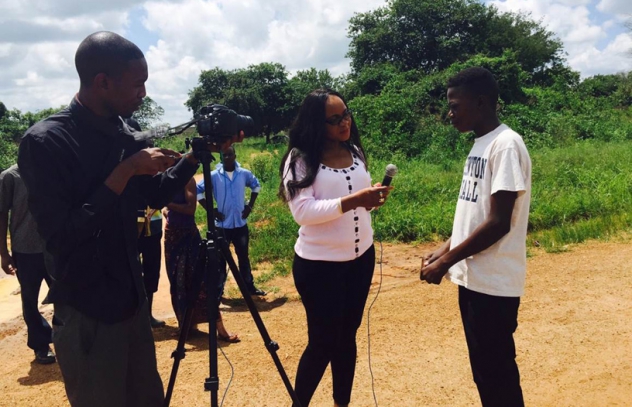Young people in eastern and southern Africa, like many of their peers around the world, often receive conflicting and inaccurate information about sex. This can lead to badly informed decisions about how, when or with whom to have sex and how to protect themselves against HIV.
With support from UNAIDS, UNESCO and SAfAIDS a major regional series of radio and TV programmes has been launched to address this gap. It is designed to deliver comprehensive sexuality education to young people and give them a forum to discuss issues around sex and sexuality, in a region where HIV prevalence is high. Across Africa, AIDS-related illness is still the leading cause of death among adolescents, and adolescent girls and young women are especially vulnerable to new HIV infections.
According to Charity Banda, HIV/AIDS Coordinator at Zambia’s Ministry of Education, this move is very important.
“By facing puberty without being prepared, young people are left confused and unsupported. This ultimately makes them vulnerable to high-risk behaviours that increase their chances of contracting HIV. That’s why this new initiative is so timely.”
The series was first launched in Zambia on 21 February 2015 and is set to be broadcast in five other countries later this year: Malawi, Mozambique, Namibia, South Sudan and United Republic of Tanzania. The Zambian series has 26 TV episodes, 13 radio episodes and includes a 15 minute live talk show every Saturday called The Sexuality Talk Challenge.
It is being aired on the largest television and radio network in the country, the Zambia National Broadcasting Corporation, which reaches more than 4 million people every day on TV alone. The programmes are being translated into several local languages.
Guests on the show include young people, youth-led organizations, teachers, government officials, policy-makers and civil society representatives. Topics discussed on air have touched on: love, sex and healthy relationships; self-esteem and understanding yourself and your rights as an adolescent; peer pressure; and challenging misconceptions. One episode has also been dedicated to improving communication between young people and the significant adults in their lives.
“Evidence has shown that teenagers who have discussed issues with their parents or guardians are more likely to make safer, smarter decisions about sex and their sexuality,” said Patricia Machawira, UNESCO’s Eastern and Southern Africa Regional Advisor on HIV and Education. “This includes waiting longer to begin having sex, having fewer sexual partners, using contraception and having the confidence to say “no” to doing anything they are not comfortable with,” she added.
The series’ frank and open discussions have already been sparking debate. The partners hope that by the time the programme finishes its run in Zambia at the end of June such discussions will have helped break down barriers to communication, with access to accurate information empowering young people to make informed choices for a better, healthier future.
As Medhin Tsehaiu, UNAIDS Country Director for Zambia, sums up, “Information is power and young people need to be equipped with the right information and skill to make right decisions.”

